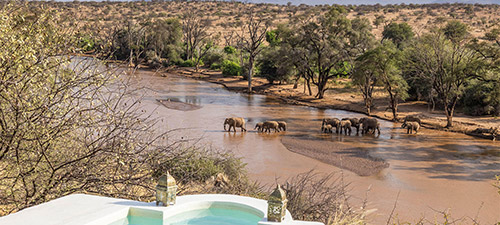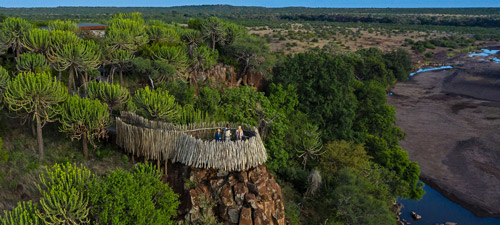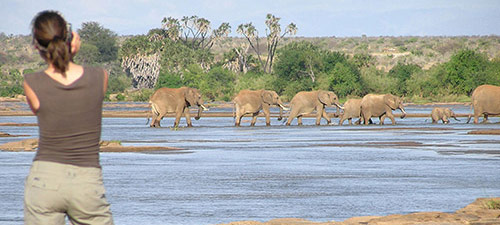A group of six intrepid guests recently participated in an Africa Geographic safari to the remote and wild Nsefu Sector of the South Luangwa National Park. By: Ed Selfe
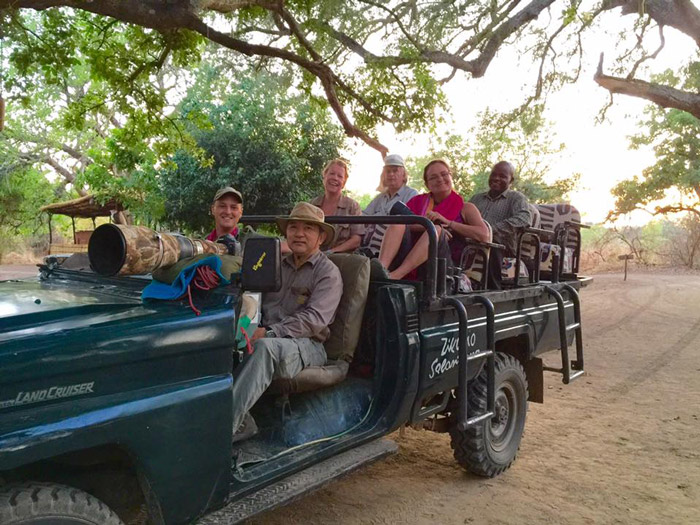
This area is only accessible during the sector’s peak game viewing months (August-October). It offers some of the most genuine and rewarding game-viewing in Southern Africa, with the increasingly rare benefit of being extremely remote and secluded with few other visitors. The Luangwa River’s meanderings create a diverse matrix of beautiful habitats that form a stunning natural backdrop.
The very first evening in Luangwa was blessed by a beautiful sunset with a couple of elephants sedately drinking at the river. We couldn’t have set it up more perfectly! And it did set the tone for the week as we enjoyed wonderful sightings in the Luangwa Valley.
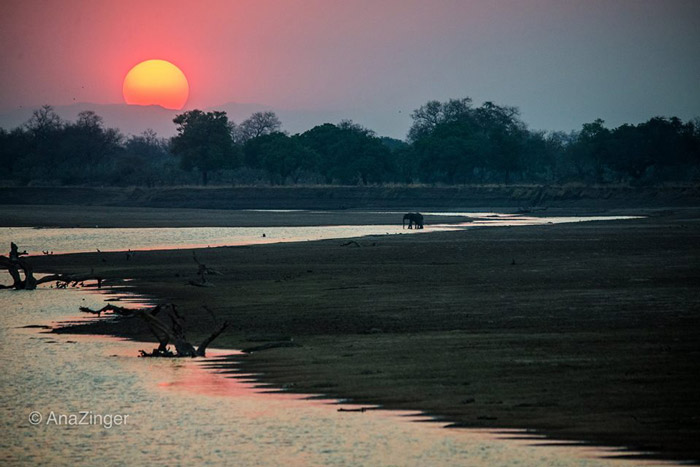
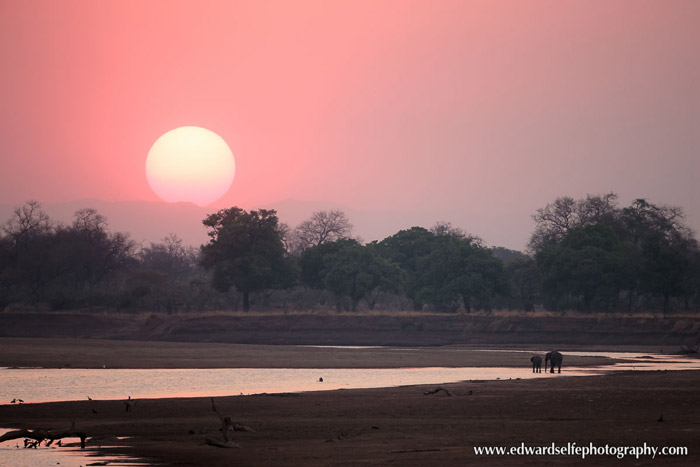
The benefits of this remote area were evident on the very first morning when a herd of bull elephants of mixed ages were spotted heading towards the river. We followed the river and stopped in the perfect spot to view them cross – with no one else around.

Holding a Grade 1 guide’s licence allows me to lead walking safaris in the national park, so when the bulls moved out of the river and across the sand, we got down from the vehicle and flat on the ground. Whilst safely protected by the vehicle, we took some wonderful low-angle photos.

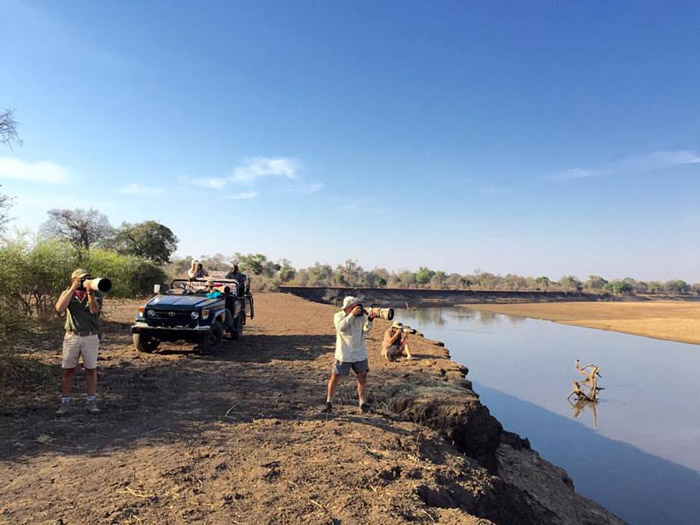
One of the mornings, we locked onto the alarm calls of a puku (an antelope species found almost exclusively in Zambia’s riverine regions) and after some searching, we came across the source of the commotion – a chunky male leopard climbing from tree to tree.

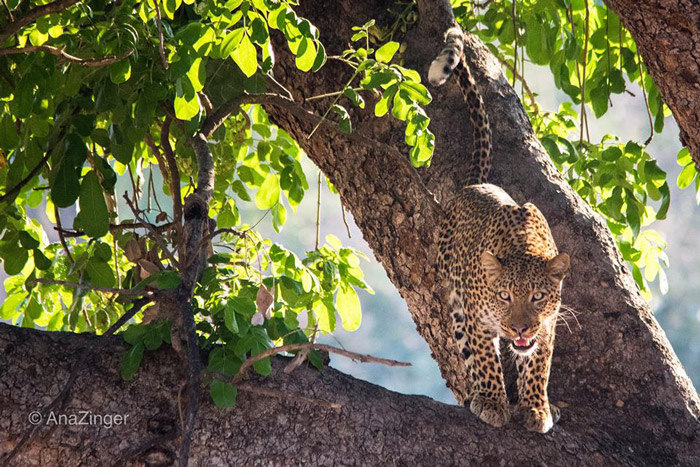
We used Zikomo Safari Camp as our base – a simple, rustic and remote camp on the banks of the Luangwa. They have an enviable location bordering the main South Luangwa National Park and the Nsefu Sector. This meant that we had permission to cross the rivers that form the park’s boundaries, which allowed us to follow up on any sightings or sounds happening on either bank of the river. There is nothing more frustrating than spotting lions on the far bank and being powerless to approach them!
So it was one morning that we found the local Luwi pride resting in the shade of a sausage tree on the opposite bank. That afternoon, we left camp, crossed the river and approached the pride as they were rousing. The light was perfect, and the interaction between the males and their cubs was one of the highlights of the trip.
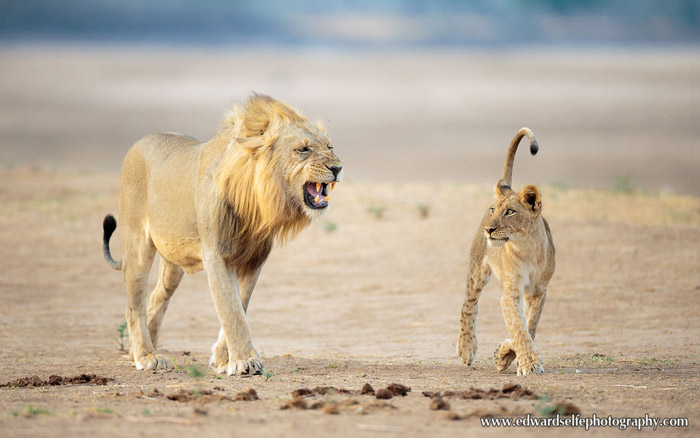
The females soon set off hunting, so we gave them some space to manoeuvre, but the light was still too bright, and their attempts failed. We settled down in a sandy riverbed and shared the last of the evening light with them. Once again, we were entirely alone at this wonderful sighting in one of Africa’s most remarkable locations – a truly amazing feeling. There was ample time to discuss compositions, the best angles for lighting, and for every guest to ask questions about how to get the photos they wanted.
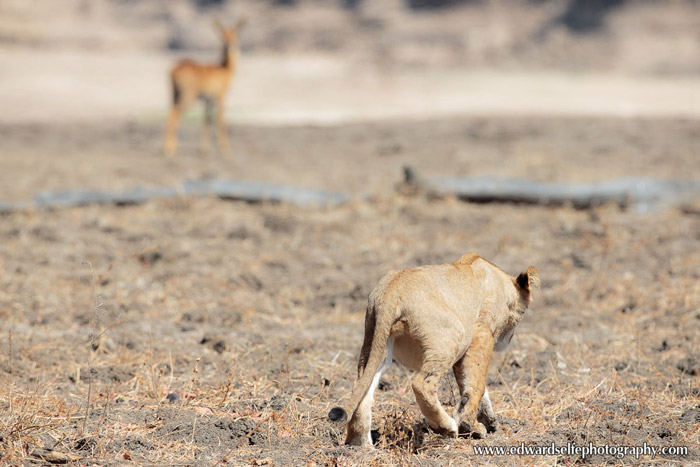
One night, we carefully approached a hyena den, knowing that they had small cubs. We kept very quiet and waited for them to come out. It didn’t take long, and the following 30 minutes became an incredible highlight of this trip as two cubs were seen being groomed and cared for by a large female. We were able to sit and watch this behaviour without disturbing them and enjoyed a great chance to discuss what were the best settings to make the most of spotlight photography.

Later that night, we met another vehicle on a lion sighting. We took the chance to photograph the lion using their light – a textbook opportunity to photograph with a spotlight and another chance to teach and learn.
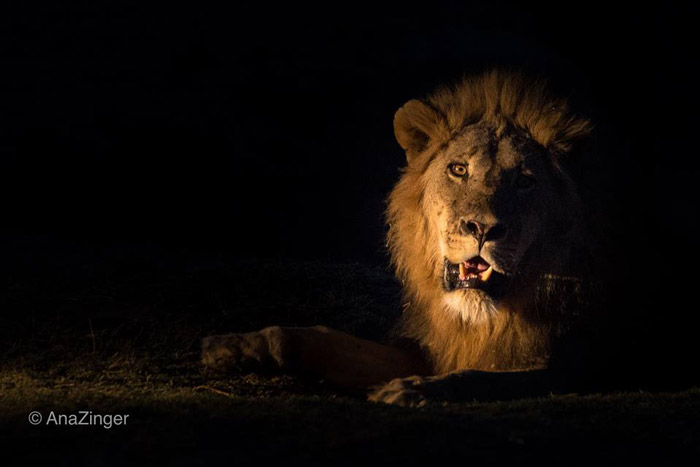
Our last morning turned out to be the best. Just when I wondered what else I would try to show the group, a large herd of buffaloes approached the river. While the buffaloes sniffed the air and decided whether to come down, we played with fast-shutter speed shots of impalas running across the sand – producing a very respectable and fun collection of panning shots.
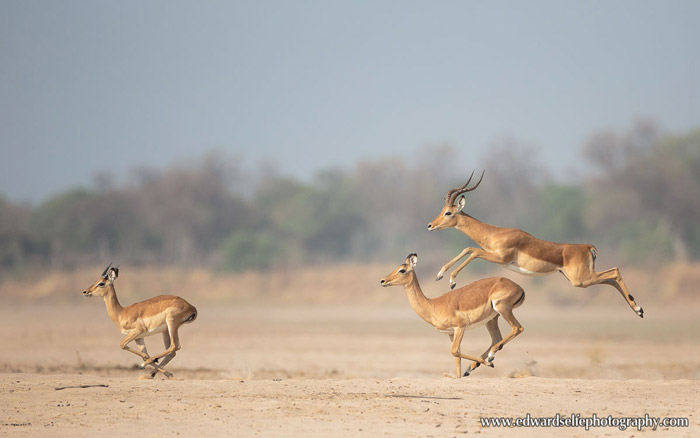
Finally, the large buffalo herd came down the bank, and we all managed to take some great photos that captured the moment – the haze, dust and slightly harsh light worked beautifully to accentuate the drama of this encounter.
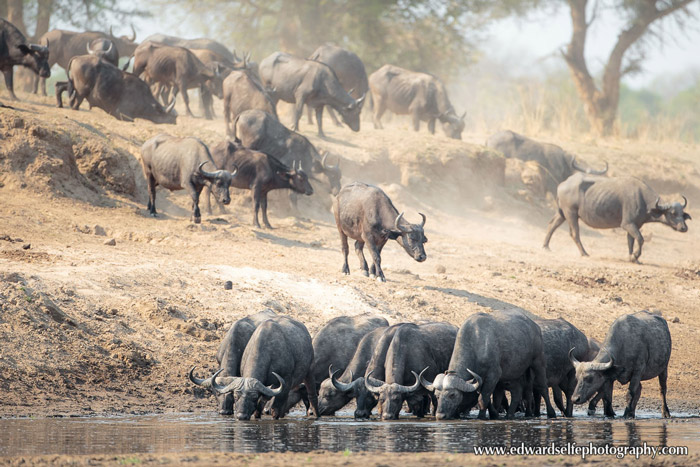
Moving on from this, we were very happy to find a small lion pride we had followed earlier in the week. They had recently killed a warthog and were contentedly feeding on the carcass.
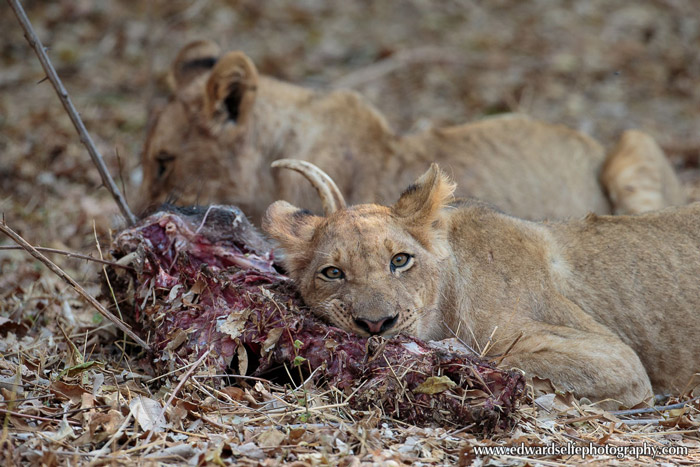
Returning to camp as the light became too bright, we found giraffes coming to drink at the river and enjoyed their reflections appearing and disappearing as the wind blew ripples across the water.
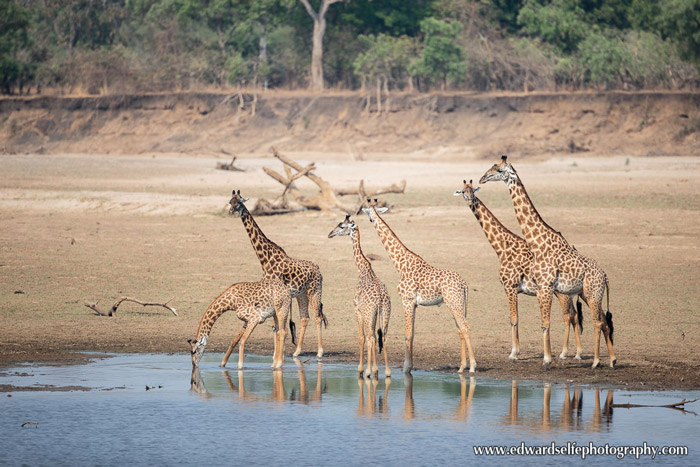
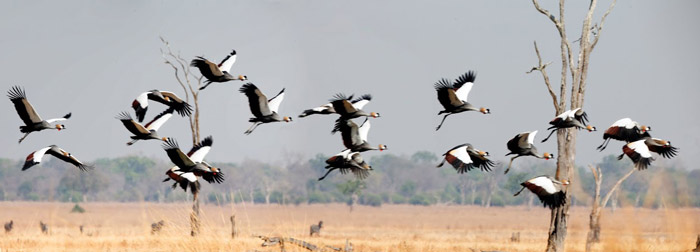
Next year, we will continue to use the rustic and simple offerings of Zikomo Bush Camp, and we plan to visit the valley a little earlier to avoid the heat while still reaping the endemic benefits offered by the Nsefu Sector.
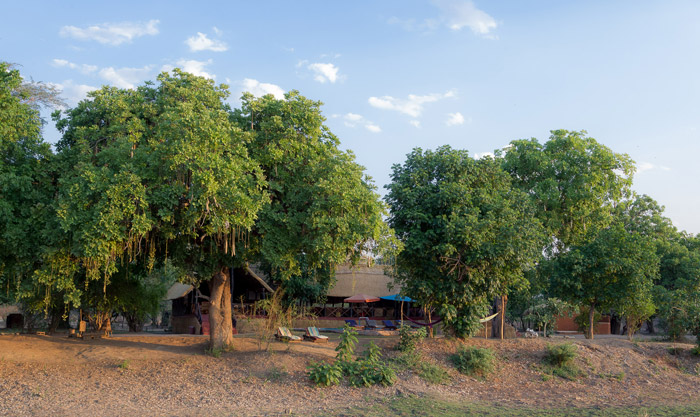
As it often happens when I leave this area, I am already yearning to be back. I cannot wait to show this awesome corner of Zambia to anyone who chooses to join us on an Africa Geographic safari.
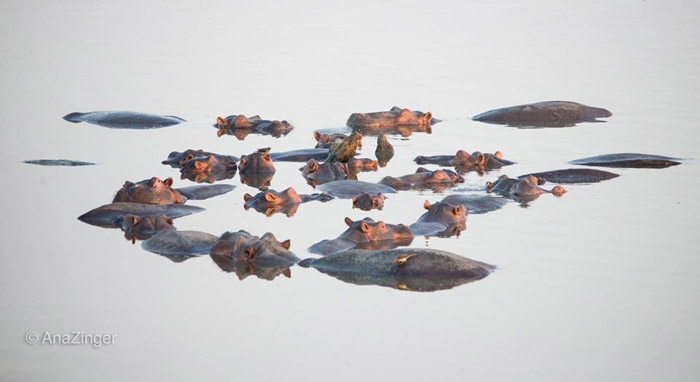
Comments from our guests:
“The lodge staff are very friendly, accommodating and helpful and went out of their way to make our stay comfortable. Food was good and one could not expect any better, considering the remoteness and heat that they have to contend with on a daily basis. Ed is a highly likeable person and conducted the safari in a very professional manner. He is very knowledgeable and explained things about nature in good detail. He understands photography and manoeuvred the vehicle into great positions for making the most out of photographic opportunities.” – A.Ellmer, South Africa
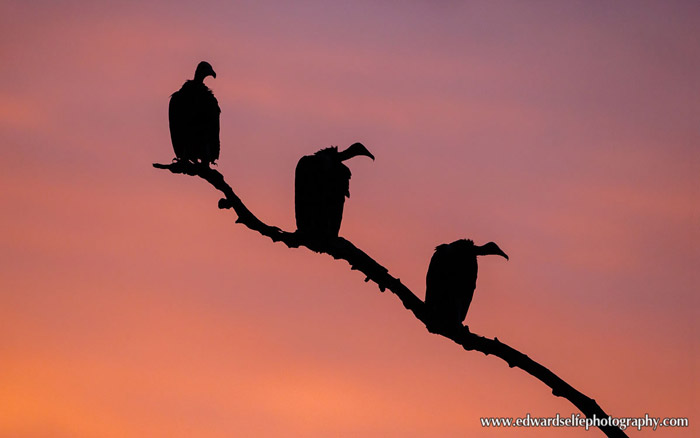
“Ed Selfe, the guide on this photographic safari, was brilliant at accommodating the wide variety of levels of photographic experience on the trip. His photographic knowledge and ranger experience were invaluable to improving my photographic skills.” – B. Hobday, Australia
 How about South Luangwa for your next African safari – find a ready-made safari or ask us to build one just for you.
How about South Luangwa for your next African safari – find a ready-made safari or ask us to build one just for you.
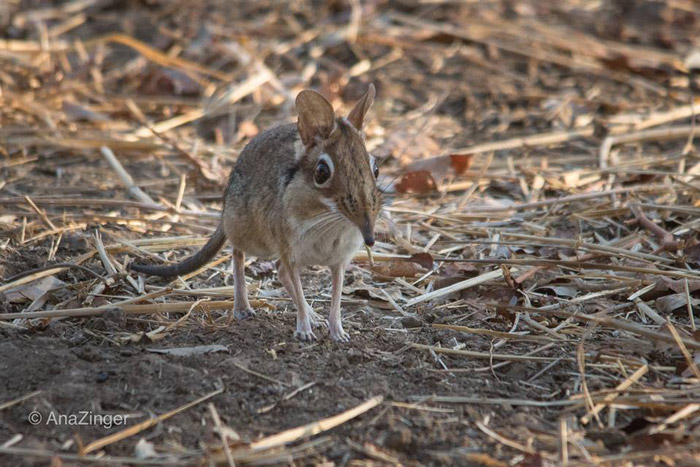
To comment on this story: Login (or sign up) to our app here - it's a troll-free safe place 🙂.![]()



